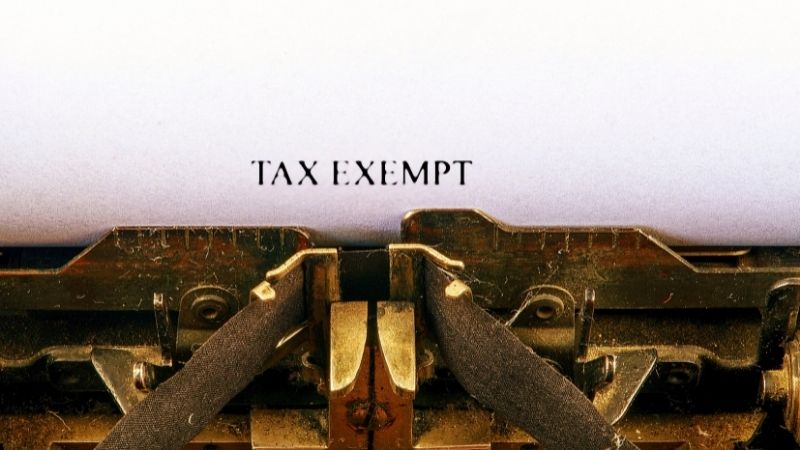Tax Exempt & Government Entities Division Releases 2022 Program Letter
The IRS Tax Exempt and Government Entities division released its fiscal year 2022 Program Letter on October 7, 2021, summarizing its plans for the upcoming year.
The Program Letter addresses the division’s projects and priorities for fiscal year 2022 for tax-exempt organizations, employee benefit plans, Indian tribal government and tax-exempt bonds.
The TE/GE division provides taxpayers assistance to properly file and pay their taxes while also enforcing the tax laws to maintain fairness for all.
The division reports that fiscal year 2022 will be a year of growth and change. TE/GE plans to invest in new resources to expand outreach to the tax‑exempt sector and to increase their enforcement staff to balance their obligation to serve taxpayers as well as enforce the tax laws. For nearly a decade, the TE/GE division’s workforce has declined annually. New employees hired under the growth plan in fiscal year 2022 will focus on enforcement duties.
Insight
The hiring of new TE/GE agents focused on enforcement may mean that tax‑exempt organizations could expect an increase in compliance audits and reviews. During these audits and reviews, taxpayers should be patient with the new agents.
The TE/GE division plans to continue its efforts to create a user‑friendly experience for the tax‑exempt community. For example, it will continue to build on its 2021 investment in a new Chief Tax Experience Officer and the opening of the Taxpayer Experience Office, with a focus on multilingual assistance, increased digital services, proactive outreach and advanced data analytics. It will be more important than ever to focus on the accuracy of filings, as selection for compliance audits and reviews will continue to become more data‑driven than random sampling.
The TE/GE division works to carry out its plans while striving to improve efficiency and modernize processes to best utilize government resources. The new Program Letter focuses on the following actions for the upcoming year.
Strengthen Compliance Activities
Compliance strategies are issues approved by the TE/GE’s Compliance Governance Board to identify, prioritize and allocate resources within the TE/GE filing population. The current priorities are:
- Collaborate across the IRS on existing and emerging issues – The focus will be on syndicated conservation easements, abusive charitable remainder trusts, ESOPs, COVID‑related employer credits and continued review of potentially abusive promoter schemes with an impact on TE/GE.
- Support examinations of high-income taxpayers with TE/GE issues – The focus will include private foundations and the creation of a joint audit process in cooperation with the IRS Large Business and International and Small Business and Self‑Employed divisions.
- Partner with IRS Criminal Investigation and Research Applied Analytics & Statistics – The focus is to identify cases with potentially significant noncompliance.
Improve Operational Efficiencies
As noted previously, the IRS is striving to improve efficiency by incorporating the following steps:
- Review systems and processes – The goal is to improve internal controls and performance measures and to continue to streamline enforcement‑related procedures.
- Support Enterprise Case Management efforts – This will be accomplished by analyzing processes across TE/GE. The IRS currently has over 60 case management systems that it is working to combine into one system. This will provide the IRS with a more comprehensive and timely view of each organization’s account information, which should lead to quicker resolutions.
- Explore, create, and refine opportunities and avenues – The goal is to leverage diverse perspectives and insights to inform and enhance processes, enforcement activities and the taxpayer experience.
Maintain a Taxpayer-Focused Organization
The IRS is focused on assisting organizations with compliance through the following actions:
- Collaborate with the Taxpayer Experience Office – Expand outreach to the TE/GE community and create positive experiences for taxpayers in every interaction while helping taxpayers understand and meet their tax responsibilities. `
- Promote the e-filing of forms – This would include Forms 1024 and 8038‑CP as well as other exempt organization returns.
- Develop online resources – To promote online access to publicly disclosable filings.
Ensure Awareness and Collective Understanding
The IRS is striving to make changes and emphasize the collaborative nature of its relationship with taxpayers by:
- Proactively communicating with the communities served – Designed to encourage compliance with tax laws through expanded outreach, such as the TE/GE Small Entity Compliance Initiative.
- Strengthening stakeholder partnerships – Ensure the identification, development and delivery of effective messages.
- Increasing the use of cross-functional teams – To address business change initiatives.
Leverage Technology and Data Analytics
As many other organizations, the IRS is focusing on the utilization of technology and data analytics to:
- Detect emerging issues using data analytics
- Launch taxpayer digital communications capabilities and use robotic process automation – Utilize this to make processes more efficient and effective for organizations.
- Improve access to, and use of, digitalized data – Utilize data to identify issues with a high risk for noncompliance.
- Leverage publicly available data – Utilize this to streamline and automate the process for identifying the universe of hospitals subject to the Affordable Care Act review.
Develop IRS Workforce
To address past labor shortages, the Program Letter lists the following action plans:
- Develop a recruitment and hiring strategy – Focused on identifying, hiring and retaining TE/GE employees to improve responsiveness and efficiency.
- Assess IRS employees’ training needs – Expand the skills of IRS employees to create a more flexible and well-trained workforce.
- Enhance employee and manager development – This will be accomplished through training, developmental assignments, coaching and mentoring.
Management at exempt organizations should be aware of the role the TE/GE division plays, consider the potential implications the plans outlined in the Program Letter may have on their organizations and consult with their tax advisors as necessary.

